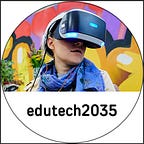Lessons in the future: How the next decade will change higher education
There aren’t many aspects of life that have changed more since the turn of the millennium than how we educate ourselves.
For that, we have the internet to thank first and foremost. The great depths of information we now have access to via a simple flick of the finger would almost have been unfathomable just 30 years ago.
In fact, the wealth of data and statistics we can use to form opinions and drive content is so vast that there’s a legitimate concern that there’s simply too much coming in from too many unreliable sources. Fake News represents the ugly side of this brave new era of unprecedented interconnectivity and will no doubt be a major concern for universities and higher education institutions as we move into the next decade.
Despite the increasing prevalence of misinformation, there should be very few reasons to be fearful of those associated with higher education. Technology has empowered students to collaborate seamlessly over social media in group projects, access extensive texts from university libraries online, and submit completed essays and work digitally.
The contrast between educational institutions in the early 1990s and today is emphatic, so what can we expect to see over the next decade of technological innovations?
Working with intelligence
Technavio predicts the educational artificial intelligence market will have grown by almost 48% by 2022 alone, with more higher education institutions eager to implement some form of AI technology to aid learning.
However, the potential power of artificial intelligence extends way beyond the domain of learning tools. Some institutions around the world are already working on implementing AI as a means of aiding the development of individual students. University 20.35 uses artificial intelligence to interpret big data into devising each of its students’ educational trajectories — ensuring that none of its online students are left behind or left feeling unchallenged. We sat down with Dmitry Peskov, the head of University 20.35, and had some interesting thoughts. Here are a few questions we asked him:
Hello Dmitry, please tell us about your role within AI in higher education?
I am faced with the task of training professionals for the digital economy of the future. When we started dealing with this challenge, we saw that educational programs in traditional universities and the teaching methods applied therein didn’t correspond to the needs of either private companies or the state. Everything is transforming very quickly, new specializations are created, and the requirements for traditional ones are constantly expanding. We realized that we need a data-driven educational platform where everything would be personalized as much as possible through the use of AI. Hence, the University 20.35 was established as a result.
Could AI help resolve some of the big issues when it comes to education?
Yes. Artificial intelligence allows for a high degree of accuracy in evaluating what is important and interesting for a particular person. A student who consumes only what is interesting for them learns much better. It is safe to say that the professional career of such a person will go uphill quite rapidly since the person clearly knows what they need and how to achieve that. But the beginning of everything is an individual approach to education.
How accurate can AI be in calculating students’ pathways?
It all depends on the quality of the data that we give the AI. It can take in a lot of data, but if we want to get the most useful information from it, then, we should help it. For example, I already mentioned that the AI analyses various multimedia materials that students upload into the system. But, in order to draw practical conclusions from that data, it must relate to the educational process. Our experience shows that students quickly adapt to productive interaction with AI.
Source: foreignpolicyi.org
